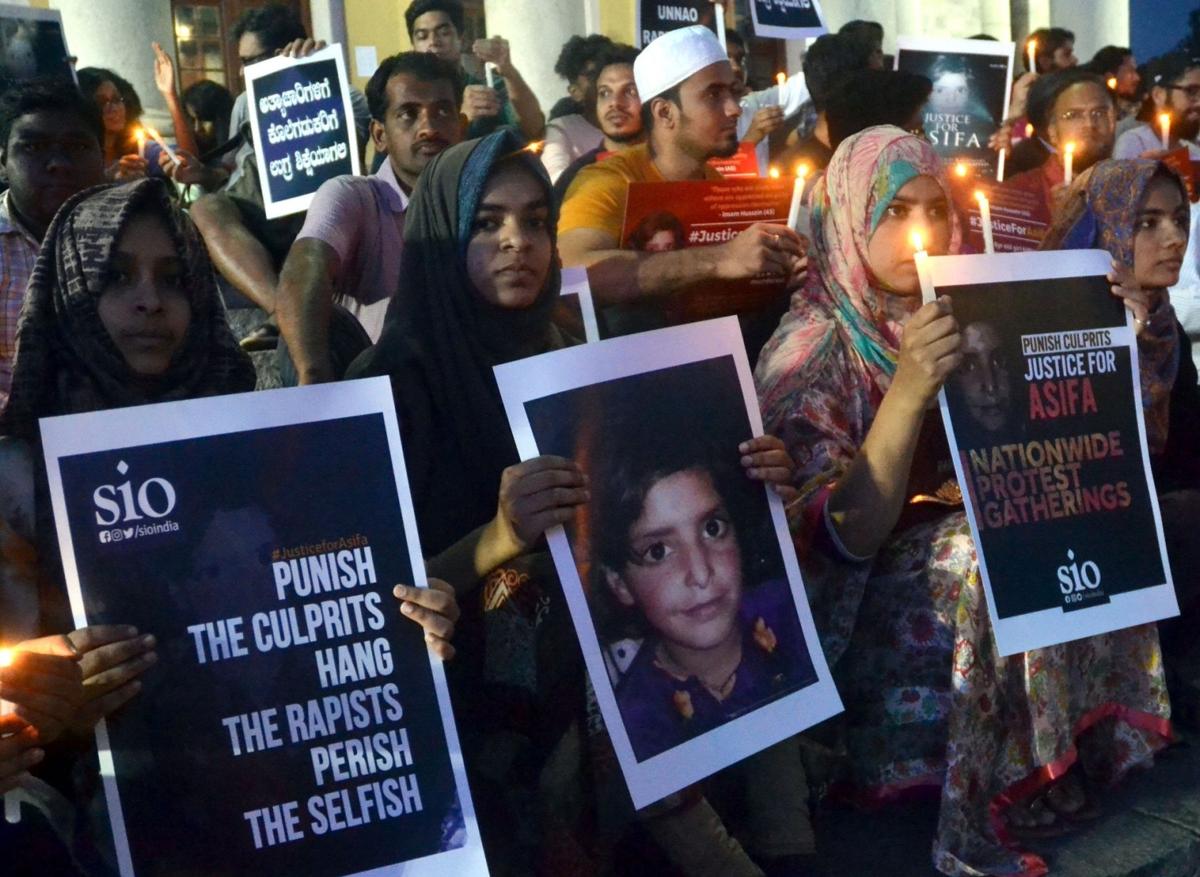THE NEW LEAM VIEW
In this sharp reflection we have looked at our collective political and moral decadence to make sense of the lowest form of relationships between two religious communities and its gendered subjects.
Editorial Team

Enough has been said and written about the Kathua and Unnao tragedy. Possibly, this is also the time when we need to reflect on our collective decadence – political, cultural and ethical. Only by saying that some nasty politicians and goons are responsible for this, or only by organizing torch light demonstrations we can’t escape from the cruelty that has inflicted all of us.
To begin with, we need to ask ourselves a pertinent question. Is it that we deserve the kind of politicians we find among ourselves. We have elected them; we have almost internalize the belief that good people are not fit for politics, and hence despite our knowledge that criminals or corrupt politicians are begging our votes, we continue to elect them.
Possibly, the electoral system that prevails in the country makes it almost impossible for well -meaning honest people to contest the election . It’s a game of organized money and muscle power without any deeper urge to create a better society. And we too have begun to glorify it as some sort of pragmatism . We believe that there is no alternative to what prevails, and if anyone strives for different political culture we condemn it as utopian or an articulation of Maoist insurgency. We have to accept that the politicians responsible for the Kathua and Unnao episode exist because of our consent. We all are on the same boat.
Second, see the overall decadent cultural landscape you and I have nurtured and created. To put it bluntly, we see the widespread pornographic mentality surrounding our everyday existence. From its gross representation in widely disseminated culturally coded messages and symbols to overall objectification of sexuality and human relations we see extreme form of brutality and violence. Like a cup of instant coffee, sex is a matter of consumption. Women are reduced into bodies for extremely brutal masculinist lust and desire. The cultural industry, the glossy sexually perverted visual culture or even the sophisticated page three material – we see a culture that promotes vulgarity, sexual pathology and aggression.
Third, these incidents remind us once again of what the likes of Saadat Hasan Manto wrote during the partition violence. We know how communalism in the subcontinent affected women most severely. Women from both the communities were raped, murdered and violated. And this brutality was often seen as a marker of the victory of the one community over the other. Communalism, we should not forget, is inseparable from hyper- masculine sexual aggression over women from “other communities”.
Is it that history is repeating itself? Since 2014 with the changing political equations in the country we have been witnessing the massive communalization of public culture and consciousness. From lynching to mob violence to demolition of statues to fear psychosis all around, we are seeing the lowest form of relationship between religious communities. Nothing seems to exist in this relationship except fear, violence and brutality. We keep legitimating it in the name of majoritarinism, religious pride and nationalist honor.
So when the incidents of this kind happen we need not be surprised. Every second , every minute, every hour we have been creating and nurturing this culture that is inherently violent, gendered and unethical. Is it possible for us to look at the tragedy confronting the nation through a more comprehensive perspective, and alter our ways of doing things ?
We pose this question before the larger society.
***














